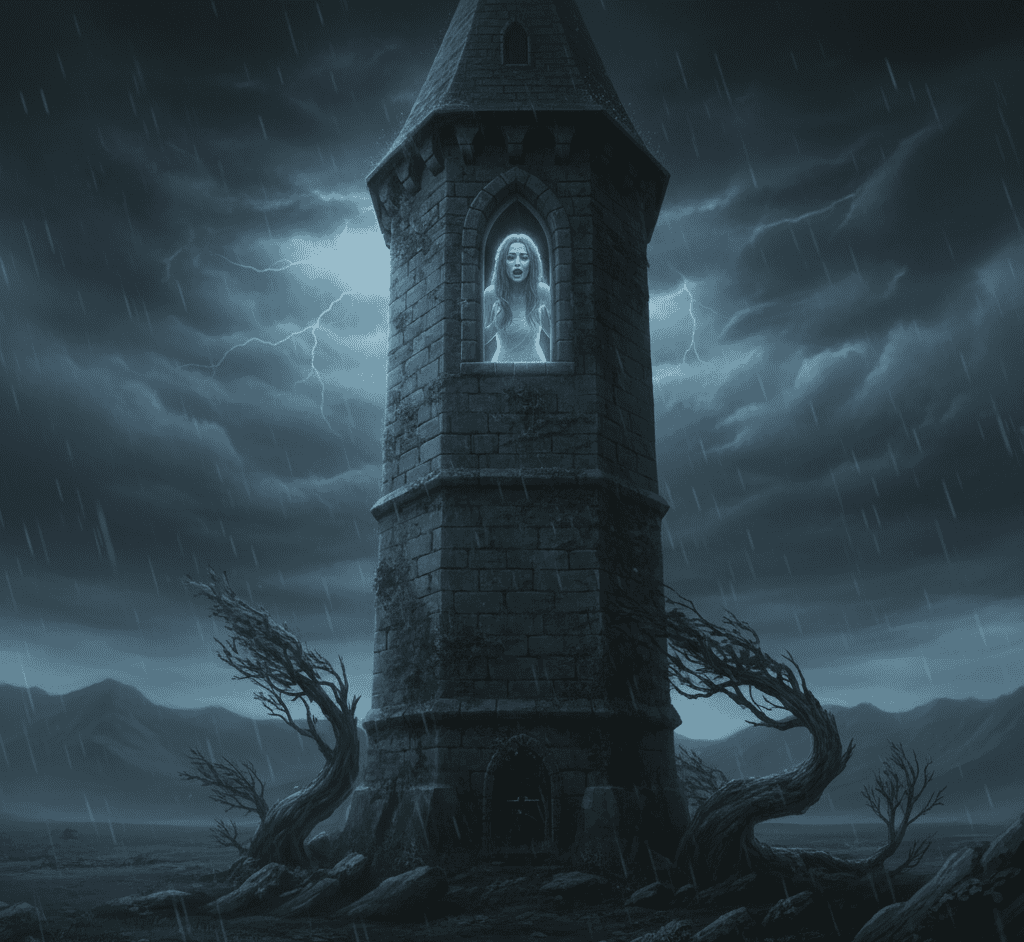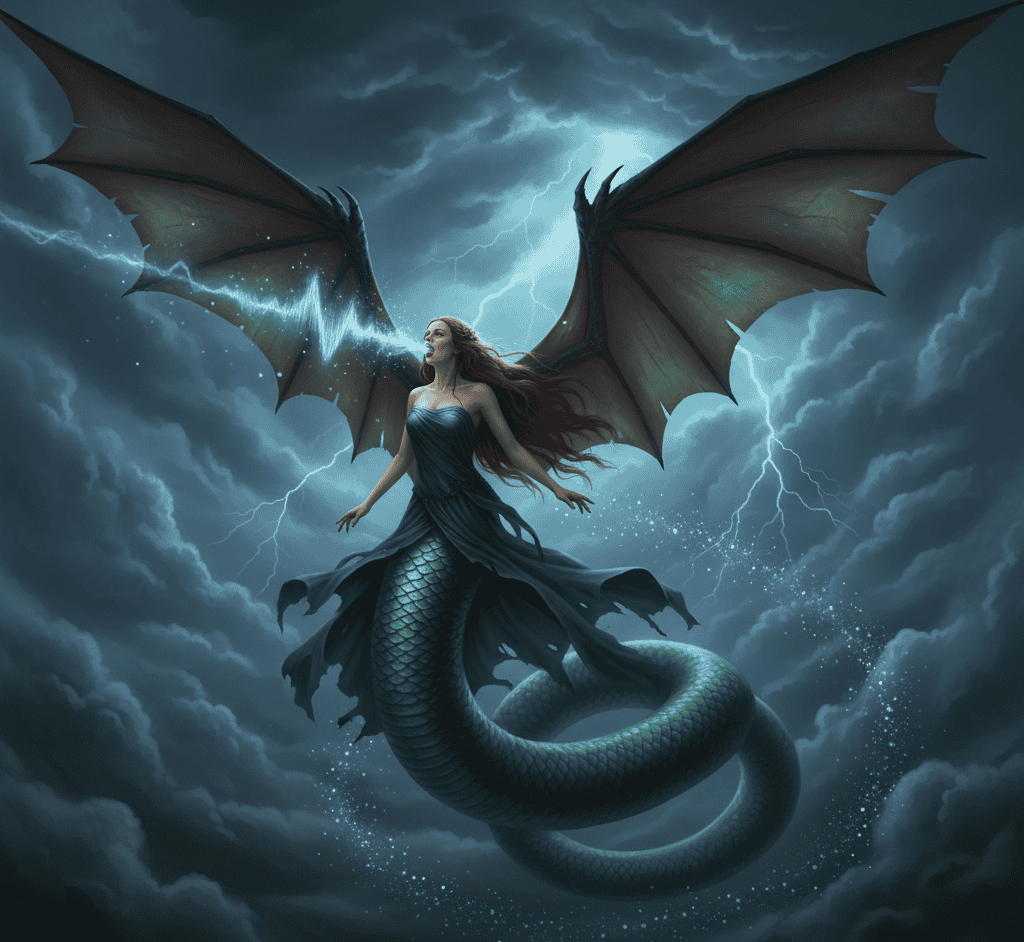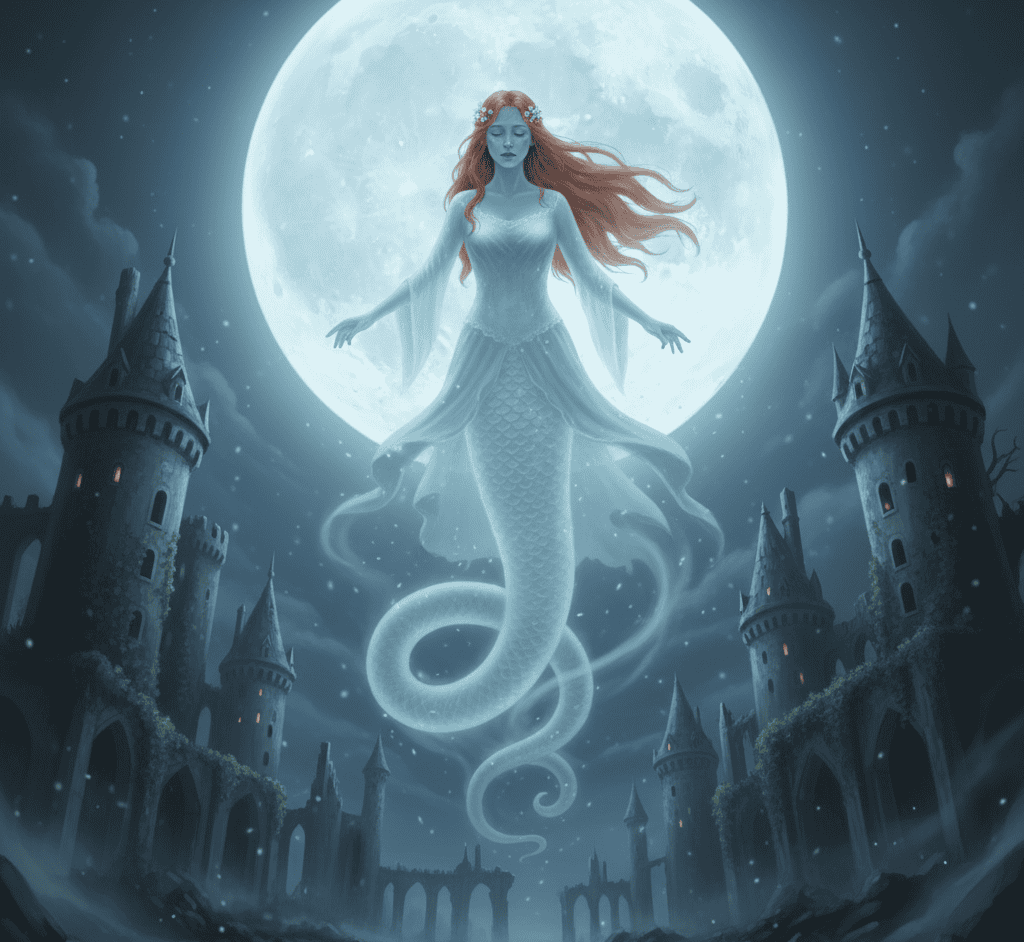Melusine is one of Europe’s most fascinating legendary beings, often described as part woman, part serpent or fish.
In medieval folklore, she haunted rivers, wells, and springs, her story blending the beauty of a mermaid with the danger of a siren.
Unlike Greek sirens who sang from rocky islands, Melusine’s realm was freshwater and castle walls, where she bewitched noblemen and shaped entire dynasties.
Over centuries, she became a figure of mystery, tied to themes of love, betrayal, and the inescapable pull of the supernatural.
Her legends ripple through France, Germany, and beyond, where she is sometimes a guardian, sometimes a curse, and always a presence that cannot be ignored.
Let’s dive into ten myths where Melusine takes on siren-like qualities, showing her voice, beauty, and magic as powers that blur the line between human and otherworldly.
1. The Enchantress Of The Fountain
One of the earliest stories places Melusine at a fountain, singing so sweetly that a weary knight named Raymondin could not resist approaching.
The fountain itself seemed to glow with her presence, as if her voice had awakened the water.
Like a siren, Melusine lured him in, though not toward death but toward love. She offered companionship, beauty, and a promise of fortune, provided he obeyed one condition: never to watch her on Saturdays.
Just as sirens tempted sailors with impossible bargains, Melusine set a test of loyalty that would define their fate.
2. The Saturday Secret
At the heart of Melusine’s myth is her siren-like mystery. Every Saturday, she locked herself away, bathing in secret.
The truth was that on those days, her lower body transformed into that of a serpent or fish.
This hidden ritual gave her a dangerous allure. Like a siren hiding her true form, she lived between two worlds, luring Raymondin into a relationship that demanded trust without full knowledge.
The secrecy became a song of its own, pulling him deeper into her enchantment while concealing the danger beneath.
3. The Builder Of Castles
Unlike most siren figures who destroyed, Melusine sometimes created. In many versions of her legend, she used her powers to help build castles overnight, her magical strength raising walls and towers that still stand today.
Her creations included the Château de Lusignan in France, which became the seat of a noble line.
This echoes sirens’ ability to change destinies with their voices, except here Melusine sang through stone and mortar.
Her myth linked the prosperity of entire families to her supernatural gifts, but also to the fragility of keeping her secret intact.
4. The Lament From The Tower
Like sirens who sang mournful songs, Melusine was said to cry or wail when misfortune was about to strike her descendants. Her voice became an omen.
People claimed to hear her weeping from the towers of Lusignan whenever a family member was about to die.
The sound resembled a siren’s call—beautiful, haunting, and impossible to ignore—yet instead of luring sailors, it warned of death within the bloodline.
This mournful chant tied her forever to the fate of the house she built.
5. The Betrayal Of Raymondin
Inevitably, Raymondin broke his promise. Suspicion gnawed at him, and one Saturday he spied on Melusine in her bath.
He saw her serpent’s tail, and though she begged him to keep her secret, he eventually exposed her in public during an argument.
This betrayal echoes the theme of siren myths, where curiosity or desire leads to destruction. Once revealed, Melusine let out a heart-piercing cry and flew away, half woman, half serpent, never to return as she once was.
Her departure resembled the fate of sailors dashed against rocks after succumbing to a siren’s song—love lost to the pull of the forbidden.
6. The Winged Serpent Flight
In some versions of the tale, Melusine does not simply vanish but transforms fully into a winged serpent, flying away with a scream that echoed like a siren’s final song.
Villagers claimed to hear her cries for years after, circling the towers she had built. This dramatic metamorphosis turned her from a secretive enchantress into a fearsome, almost demonic figure.
Her airborne lament carried the same power as siren voices – reminding mortals that no love with the supernatural can last unbroken.
7. The Mother Of Nobles
Part of Melusine’s legend that gives her siren-like resonance is her role as a mother. She bore many children to Raymondin, each marked in some way by her otherworldly nature.
Some had unusual features, like tusks or strangely shaped eyes, while others became great warriors and rulers.
Her maternal power mirrors the duality of sirens, who could both nurture with their songs and destroy with them.
Melusine gave her children strength and legacy, yet their lives were also cursed by her blood. She embodied the dangerous fertility of the siren archetype, promising greatness but demanding sacrifice.
8. The Curse Of Endless Wandering
After her secret was revealed, Melusine was doomed to wander. In some traditions, she returned to her husband’s castle in spectral form, flying around its towers and crying for her lost life.
This restless wandering echoes the fate of sirens banished from their rocky perches when outwitted by heroes.
Melusine’s exile was not on the sea but in the skies and rivers of France. Her eternal lament made her a haunting figure, forever bound to the waters that had given her birth.
9. The Warning To Future Generations
Long after her departure, Melusine’s story lived on as a cautionary tale. Mothers warned their children not to pry too deeply into secrets and to honor promises made in love.
For nobles, her myth was both a blessing and a curse: their lineage was tied to a supernatural mother, which granted prestige but also an air of doom.
In this way, Melusine acted like a siren of history, her story sung across centuries as both seduction and warning.
She reminded people that love with a supernatural being is powerful, but it always comes at a cost.
10. The Echo In Modern Memory
Even today, the myth of Melusine survives in echoes that resemble siren lore. She appears on coats of arms, in local legends, and even in modern branding, where a twin-tailed mermaid symbol resembles her image.
Her myth has traveled far beyond medieval France. Like sirens whose songs still echo through literature and music, Melusine’s presence lingers as a reminder of the dangerous allure of the unknown.
She is not only a figure of love and betrayal but also a European counterpart to the global idea of sirens—beautiful, mysterious, and unforgettable.

Ho sempre sentito una forte connessione con il Divino fin dalla mia nascita. Come autrice e mentore, la mia missione è aiutare gli altri a trovare l'amore, la felicità e la forza interiore nei momenti più bui.











